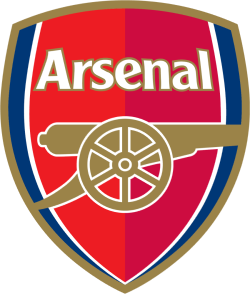
Arsenal FC
They’re now one of the biggest names in world football and one of England’s most successful clubs.
Arsenal Football Club, based in north London, remain one of the few sides in English football that consistently challenge for domestic honours, although recent success in the league and European arena has eluded them.
Known affectionately as The Gooners, or Gunners – Arsenal FC have a large, loyal fanbase and almost all home matches sell out.
Arsenal were actually founded in south-east London in 1886, and moved to Highbury Stadium in 1913. There they stayed until 2006, when the club said goodbye to their old ground and moved to the newly constructed Emirates Stadium at Ashburton Grove.
Arsenal Football Club was formed by workers at the Royal Arsenal in Woolwich and entered as professionals into the Football League in 1893 named as Woolwich Arsenal. They were the first southern team to be accepted into the league and started out in the Second Division, from which they were promoted in 1904.
Early Arsenal F.C History
Arsenal F.C were to start their winning habits in the 1930’s after they introduced Herbert Chapman as club manager. Chapman had already enjoyed great success with Huddersfield Town in the mid 1920’s, and his new ideas transformed the club. The Gunners would go on to win the First Division 5 times and the F.A cup twice in the 30’s.
After World War II, The Gunners won the league again in 1948 and 1953 and the FA Cup in 1950, but the team failed to live up to the great side of the 30’s, and an unsuccessful period for Arsenal Football Club would command most of the 50’s and 60’s.
Arsenal’s resurgence began in the late 1960’s after Bertie Mee took over as manager. The Gooners won the Fairs Cup in 1970, after twice being beaten in the League cup final in 1968 and 69.This was the first taste of European success for Arsenal Football Club.
This was surpassed in 1971 when the side captained by Frank Maclintock lead them to their first League and FA Cup double in 1971, although the rest of the 70’s would be a case of ‘close but no cigar’. Three FA Cup Final defeats, a second place finish in the first Division in 1973, and a defeat in the European Cup Winners cup in 1980 surrounded Arsenal Football Clubs’ FA Cup win over Manchester United in 1979.
Further glory would return under George Graham’s leadership, and Arsenal won the League Cup in his first season (1987). The most dramatic end to a First Division season in history, in 1989, would see a last minute winner by Michael Thomas secure the title against second placed Liverpool .
Recent Arsenal History
The title would also return in 1991,when the Gooners only lost once in the league all season. There was a cup double of FA Cup and League Cup in 1993 and Arsenal’s second European trophy, the Cup Winners’ Cup, in 1994 before Graham was sacked in disgrace over what became known as the ‘Bung’ scandal.
Much of Arsenal Football Club’s success since then can be attributed to their former manager Arsène Wenger, who was appointed in 1996. Wenger brought a huge change to the club with new tactics, training regime and the signing of several foreign players. Arsenal finished in either first or second place in the league in eight of the first nine seasons under his management.
The Gunners won Premier League and F.A.Cup doubles in 1998 and in 2002 and also won the F.A. Cup again 2003 and 2005. Perhaps Arsenal’s most impressive achievement came in 2004, when the Premier League title was theirs without losing a single match.
Other historical feats by Arsenal Football Club include the most consecutive seasons spent in the top league division (79, as of 2005) and the longest run of unbeaten League matches (49 between May 2003 and October 2004).
Under Wenger, Arsenal could claim to play some of the most attractive football in the Premier league with the influence of players such as Thierry Henry, Robert Pires, Kolo Toure and Ashley Cole being self evident.
However, since the move to the Emirates, success in the league has eluded the Gunners. Fans have often been discontented by a perceived lack of ambition from the board, who have failed to compete with their rivals in the transfer market.
These days they are seen as more of a top 6 team than serious title contenders, although they continue to be successful in cup competitions.
